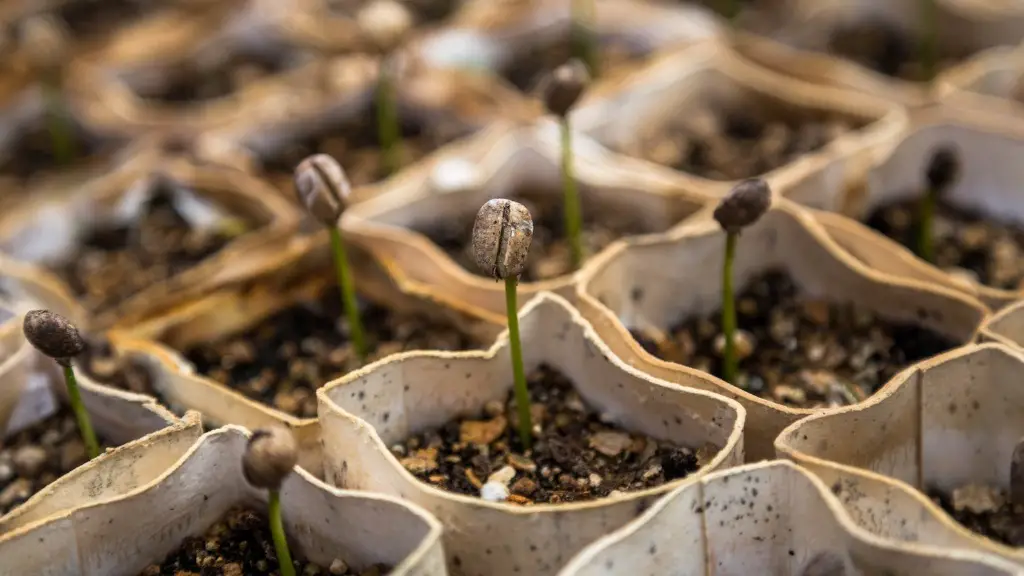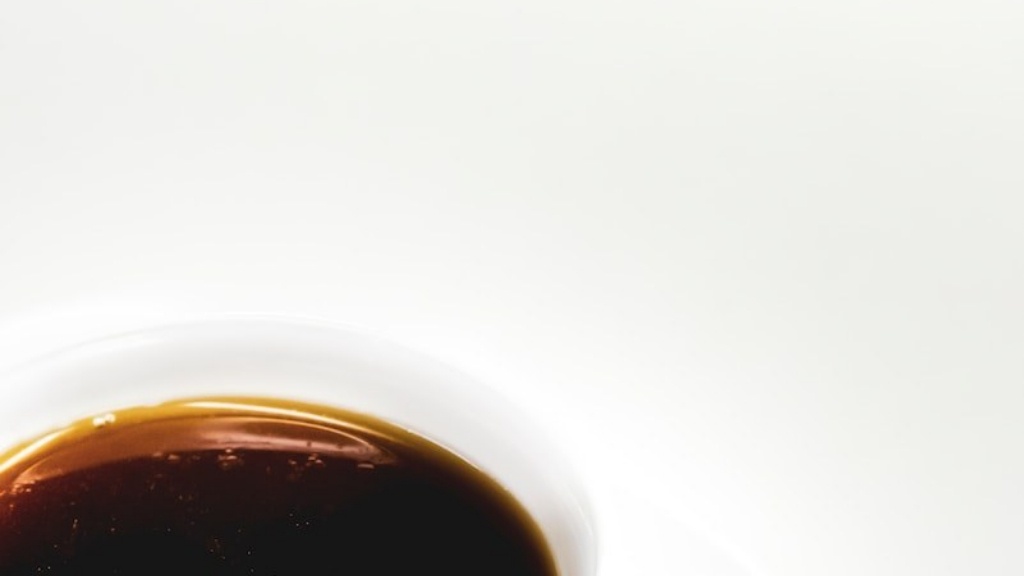Nutritional Needs for Pregnant Women
When it comes to the nutrition needs of a pregnant woman, there are several things to consider. During pregnancy, the human body needs additional energy and nutrients to support the growing baby and ensure the health of both mother and child. Proper nutrition during pregnancy is essential in order to ensure that both the mother and baby are getting the necessary nutrients for growth and development.
It is recommended that pregnant women consume a balanced and nutrient-dense diet in order to meet all the nutritional needs of both mother and baby. This includes a variety of foods from all five food groups: vegetables, fruits, grains, proteins and dairy. It is also recommended that pregnant women take a daily multivitamin to ensure that they are getting the essential vitamins and minerals needed during pregnancy.
Coffee and Pregnancy
Coffee is a popular beverage that many people enjoy for both its flavor and its caffeine content. Coffee is a source of caffeine and some studies have suggested that caffeine can have a negative effect on pregnant women and their unborn babies, such as increasing the risk of miscarriage or preterm labor. Because of this, some experts discourage pregnant women from drinking coffee or other caffeine-containing beverages during pregnancy.
According to the American College of Obstetricians and Gynecologists, pregnant women should limit their caffeine intake to less than 200mg per day. This is equivalent to about one to one and a half cups of coffee. It is also important to note that some foods and beverages, such as chocolate, tea, and energy drinks also contain caffeine, so it is important to check labels and know how much caffeine you are consuming.
Can a Pregnant Woman drink Decaffeinated Coffee?
Decaffeinated coffee or “decaf” is coffee that has had most of the caffeine removed. This makes it a popular alternative for those who still want to enjoy the flavor of coffee without the effects of caffeine. For pregnant women, decaffeinated coffee may be a safer option than regular coffee, as it contains significantly less caffeine.
According to a study conducted by the American Institute of Biological Sciences, drinking decaffeinated coffee during pregnancy is safe for both the mother and baby. The researchers found that pregnant women who drank decaffeinated coffee had the same levels of birth weight and preterm births as women who did not drink any coffee at all. However, it is important to note that the study did not examine other types of caffeine-containing beverages, such as energy drinks or tea.
In general, it is best for pregnant women to avoid caffeine altogether, or at least limit their intake to less than 200mg per day. For those who still wish to enjoy the flavor of coffee during pregnancy, it may be safest to choose decaffeinated coffee as an alternative to regular coffee.
Types of Decaffeinated Coffee
There are several different types of decaffeinated coffee available on the market today. The most common type is called “Swiss Water Process” decaf, which is made by soaking coffee beans in hot water to extract the caffeine. Other types of decaffeinated coffee include “Carbon Dioxide Process” and “Direct Extract Process” decaf, which use different chemicals to extract the caffeine from the beans.
It is important to keep in mind that even decaffeinated coffee still contains trace amounts of caffeine, as it is impossible to remove all of the caffeine from coffee beans. Therefore, it is best for pregnant women to still limit their intake of decaffeinated coffee to no more than one or two cups per day.
The Bottom Line
When it comes to coffee and pregnancy, it is important for pregnant women to be aware of the potential risks associated with consuming caffeine. While it is generally considered safe for pregnant women to drink decaffeinated coffee, it is still important to limit their intake, as decaffeinated coffee still contains trace amounts of caffeine.
In general, it is best for pregnant women to avoid caffeine altogether and focus on getting their caffeine from other sources, such as tea or energy drinks. By following these guidelines, pregnant women can ensure that they are getting the best nutrition for both themselves and their babies.
Alternatives to Caffeinated Beverages
There are many alternatives to caffeinated beverages, such as tea or soda, that can provide a refreshing and enjoyable drink without the potential risks of caffeine. For those looking for an alternative to coffee, there are a variety of non-caffeinated herbal and fruit teas available. Many of these teas also provide beneficial nutrients, such as antioxidants and vitamins, that can help support a healthy pregnancy.
Alternatively, some pregnant women may prefer to switch to decaffeinated sodas, such as cola or root beer. While these drinks still contain sugar, they are free from caffeine and can provide a pleasant and refreshing drink for those looking for something different.
In addition to beverages, there are also many other sources of caffeine-free energy, such as energy bars and drinks, nuts, and dark chocolate. Eating a variety of healthy snacks throughout the day can help pregnant women get the energy they need without consuming caffeine.
The Benefits of Non-Caffeinated Beverages
When deciding whether to consume caffeine-containing beverages or non-caffeinated beverages, it is important to consider the benefits of non-caffeinated options. Non-caffeinated beverages are free from the potential risks associated with caffeine, such as high blood pressure or preterm labor. They can also be a great source of essential nutrients, such as vitamins and minerals, that are beneficial for both mother and baby.
In addition, non-caffeinated beverages can help pregnant women stay hydrated, which is important for both mother and baby. Staying hydrated can help reduce the risk of constipation, improve digestion, and provide a wide range of health benefits.
Finally, opting for non-caffeinated beverages can help pregnant women reduce their caffeine intake, which can be beneficial for both mother and baby. Reducing caffeine intake can help to reduce the risk of high blood pressure and can help ensure that both mother and baby are getting the best nutrition.
Discussion with a Medical Expert
Deciding whether to drink caffeinated or non-caffeinated beverages during pregnancy can be a difficult decision to make. It is important to discuss any concerns with a medical expert, such as a doctor, midwife, or nutritionist, who can provide up-to-date research and advice on the potential risks and benefits.
When consulting with a medical expert, it is important to let them know about any caffeine-containing beverages or food that you are currently consuming. They may be able to provide advice on how to reduce your intake or suggest alternative beverages or snacks that may provide the same flavor and energy without the potential risks associated with caffeine.
In addition, they can provide personalized advice on dietary needs and any concerns that you may have about caffeine and pregnancy. Talking to a medical expert is the best way to make a well-informed decision to ensure that both the mother and baby are getting the best nutrition.
Caffeine vs. Non-Caffeinated Supplementation
When considering caffeine and non-caffeinated supplementation during pregnancy, it is important to look at the potential risks and benefits associated with both options. Caffeinated supplements are generally considered safe in small amounts, however, consuming too much caffeine can increase the risk of certain health issues, such as high blood pressure or preterm labor. On the other hand, non-caffeinated supplements are typically free from the potential risks associated with caffeine, as well as being a source of essential vitamins, minerals and other nutrients.
In addition, comparing caffeine vs. non-caffeinated supplementation can help pregnant women to identify the source of their energy. Some individuals may rely on caffeine to get through their day, however, this can cause spikes in energy levels and can lead to fatigue afterwards. Consuming non-caffeinated supplementation, such as a multivitamin or energy bars, can provide an even and sustained source of energy throughout the day.
Create an Individualized Nutrition Plan
For pregnant women, it is important to create an individualized nutrition plan that meets the needs of both mother and baby. This plan should include not only food, but also the type of beverages that are consumed throughout the day. It is important to consider both caffeinated and non-caffeinated beverages in order to ensure that both mother and baby are getting the best nutrition.
When creating an individualized nutrition plan, it is also important to consider any other dietary restrictions or preferences that may affect the types of food and beverages that can be consumed. For example, pregnant women with diabetes or food allergies should strictly follow their doctor’s recommendation when it comes to the food and beverage choices. Consulting with a doctor, midwife, or nutritionist can help to create an individualized nutrition plan that meets the needs of both mother and baby.
Conclusion
Coffee is a popular beverage for many people, however, pregnant women should be aware of the potential risks associated with consuming caffeine. While decaffeinated coffee may be a safer alternative, it is important to still limit consumption to no more than one or two cups per day. For those looking for an alternative to coffee, there are a variety of non-caffeinated beverages and snacks available that can provide essential vitamins and minerals while avoiding the potential risks of caffeine.
When making decisions about caffeine and nutrition during pregnancy, it is important to consult with a medical expert who can provide up-to-date research and advice. Creating an individualized nutrition plan can help to ensure that both mother and baby are getting the best nutrition.





